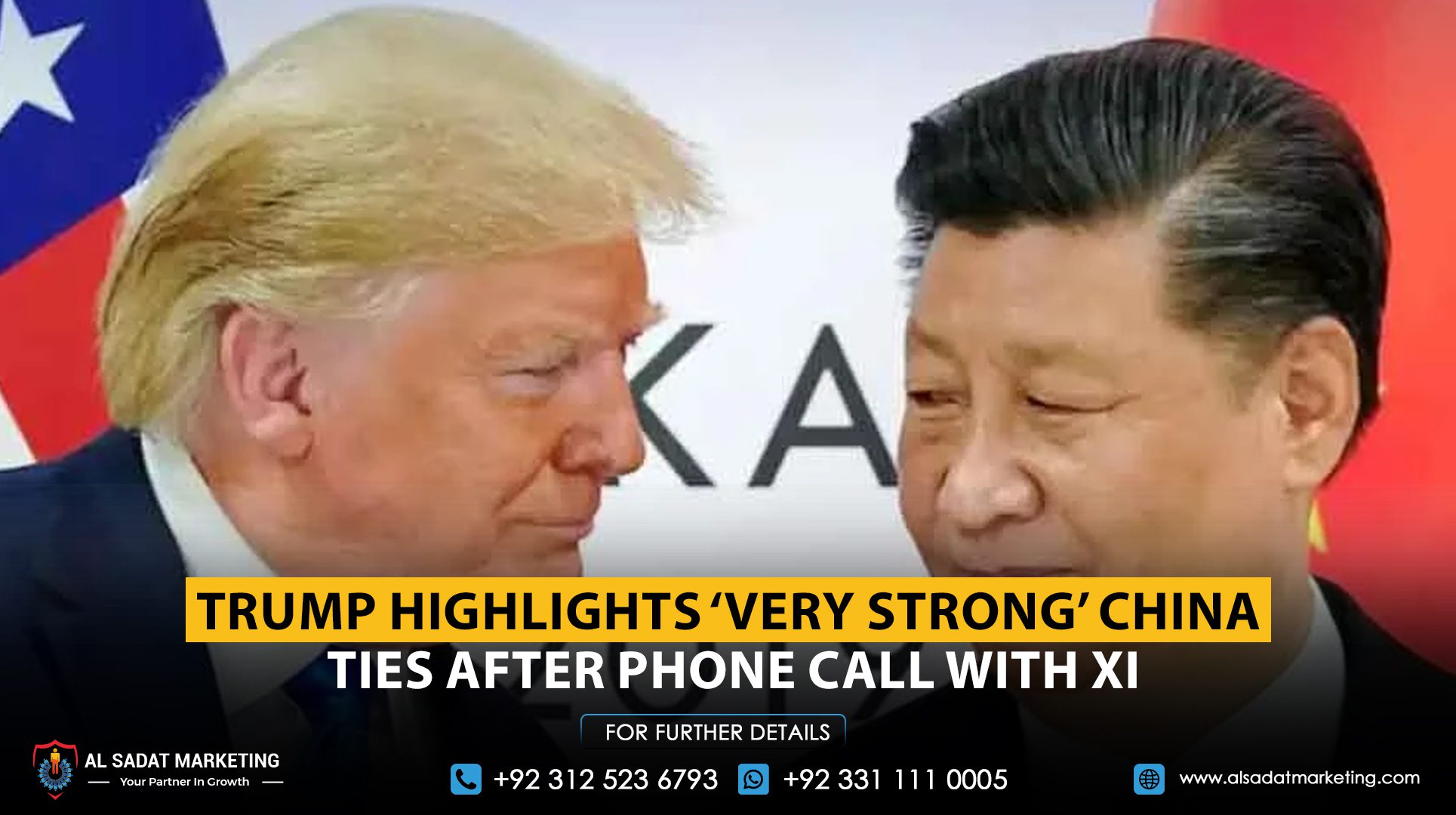US President Donald Trump said on Monday that relations between the United States and China are “extremely strong” after a phone call with Chinese President Xi Jinping. The call had not been announced by either side in advance and came weeks after the two leaders met in South Korea to outline a framework for a new trade deal.
During the call, Xi stressed that Taiwan’s return to China remains central to Beijing’s view of the global order. According to China’s state media, Xi said that both nations once fought together against fascism and should now work together to protect the outcomes of World War Two. He repeated Beijing’s long-standing position that Taiwan is part of China and that its future is a key issue in China’s foreign policy. Taiwan, however, rejects Beijing’s claim and says only its people can decide their future.
Trump did not mention Taiwan in his public statement, instead calling the conversation “very good” and saying it covered several topics, including Ukraine, fentanyl, and trade. He said both countries had made progress on commitments agreed during their South Korea meeting. Trump also confirmed he accepted Xi’s invitation to visit Beijing in April and has invited Xi for a state visit to the United States later in the year.
The White House said the call focused mostly on trade and lasted about an hour. The two countries have been trying to stabilize ties after months of tension over tariffs and export controls. Their earlier meeting resulted in a framework agreement: the US would not impose 100% tariffs on Chinese goods, while China would pause new export restrictions on rare earth minerals and magnets. Since then, China has resumed buying US soybeans, and both sides have eased certain trade measures. Washington also lowered some tariffs after China agreed to help limit the flow of chemicals used to make fentanyl.
Xi told Trump that cooperation brings benefits to both nations and urged maintaining positive momentum. He also expressed support for efforts aimed at peace in Ukraine.
Meanwhile, the issue of Taiwan continues to fuel tensions in East Asia. Japan recently warned that a Chinese attack on Taiwan could trigger a military response from Tokyo. The US has also approved a new arms sale to Taiwan, adding to pressure in the region. Beijing criticized Japan’s decision to deploy a new missile unit near Taiwan, saying it increases instability. Experts say the missiles are defensive and cannot reach Taiwan, but China worries they could open the door for Japan to expand its military capabilities in the future.
The diplomatic developments come as Beijing and Tokyo face one of their most serious standoffs in years, while Washington tries to maintain balance between its security commitments and its efforts to stabilize economic ties with China.










